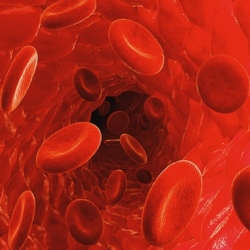
A study of the metabolic imaging technique is taking place at the Addenbrooke’s Hospital in Cambridge. Experts say it could lead to more personalised treatments for cancer patients. The technique uses a product called pyruvate, which is injected into patients and tracked as it enters cells around the body.
Because it is labelled with a non-radioactive form of carbon, the molecule is very easy to detect in an MRI (magnetic resonance imaging) scan. The scan monitors how quickly pyruvate is broken down by cancer cells, and that gives doctors an idea of how active those cells still are. And the more active the cancer cells, the less effective the drug used to kill them.
In this way, cancer can be detected quickly and the effects of drug therapies can be monitored at an early stage, potentially saving patients time on drugs that don’t work. The Cancer Research UK Cambridge Institute is the first place to test the technique on patients outside North America.
Dr Emma Smith, science information manager at Cancer Research UK, said: "The next steps for this study will be collecting and analysing the results to find out if this imaging technology provides an accurate early snapshot of how well drugs destroy tumours."
